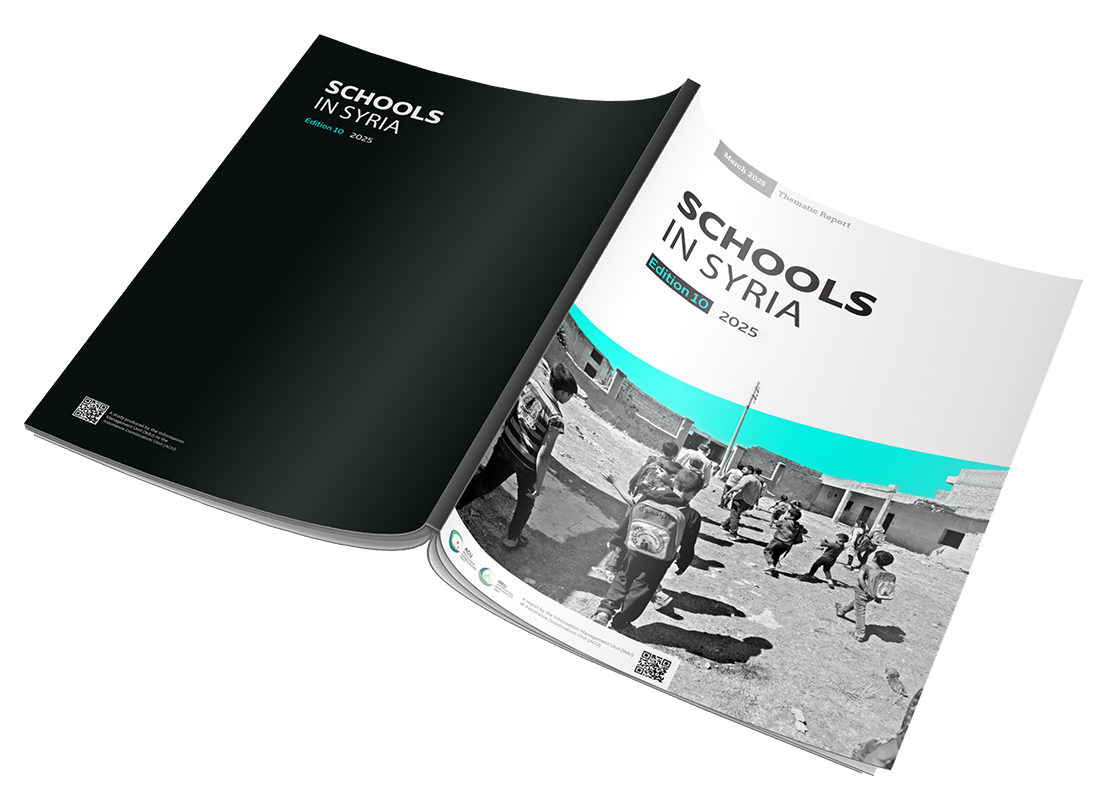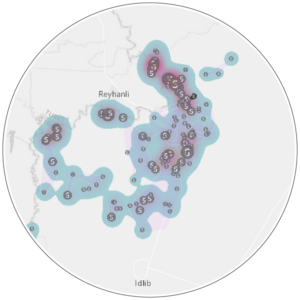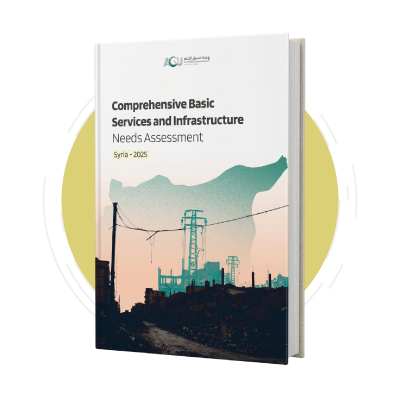“Schools in Northern Syria” is an annual study conducted to assess the education sector in areas outside the control of the Syrian regime in northern Syria. Its main purpose is to gather information on the current state of schools, the needs of the education sector, and the perspectives of key stakeholders, including teachers, school principals, parents, and students. The study also aims to shed light on the challenges faced by students in accessing education and the obstacles they encounter.
Additionally, the study examines various indicators related to child protection and assesses whether schools meet the standards set by the International Network for Education in Emergencies (INEE) and the Sphere standards. By collecting comprehensive data, the study provides a holistic overview of the education landscape in northern Syria, enabling policymakers and organizations to make informed decisions and implement targeted interventions to improve the education system in the region.
For the eighth edition of the study, data was collected during the first semester of the 2022-2023 school year in collaboration with 21 humanitarian organizations dedicated to the education sector. The study encompasses information from 4,066 schools located in 71 districts across six governorates. The data was collected through 24,157 electronic forms, which included 20,090 perception surveys. The rigorous data collection process concluded on January 5, 2023, allowing for a comprehensive analysis of the education sector in northern Syria during that specific time frame.
Key messages
- As a result of the devastating earthquake that hit southern Turkey and northern Syria in February 2023, 1,009 school buildings suffered varying damages ranging from the need to demolish and rebuild 15 of them to strengthen the structure of the building in 80 buildings and various repairs in 914 school buildings. The study recommends implementing an urgent response to build, strengthen and repair damaged school buildings to protect the lives of students and workers and maintain the educational process.
- The study recommends training staff working in schools as well as students on correct practices in emergency situations and safe evacuation mechanisms. It also recommends providing psychological support, especially for children, to help them overcome the trauma caused by the earthquake and what they were exposed to during the war.
- The study recommends the development of a unified, fair and sustainable salary system for workers in the education sector that provides them with a decent life and keeps cadres from moving to work in other sectors to meet the increasing requirements of living.
- Actors in the education sector should work to provide modern curricula and adequate copies of textbooks for all students at all stages to enhance the educational experience of students. Stationery and all school requirements should be provided to students to reduce the burden on parents and encourage them to send their children to school.
- Ensuring an appropriate learning environment for children with disabilities is one of their most basic rights, so all partners working in the education sector and donors should work to equip all schools with all means to help children with disabilities to enhance their access to schools and integrate them into education.





